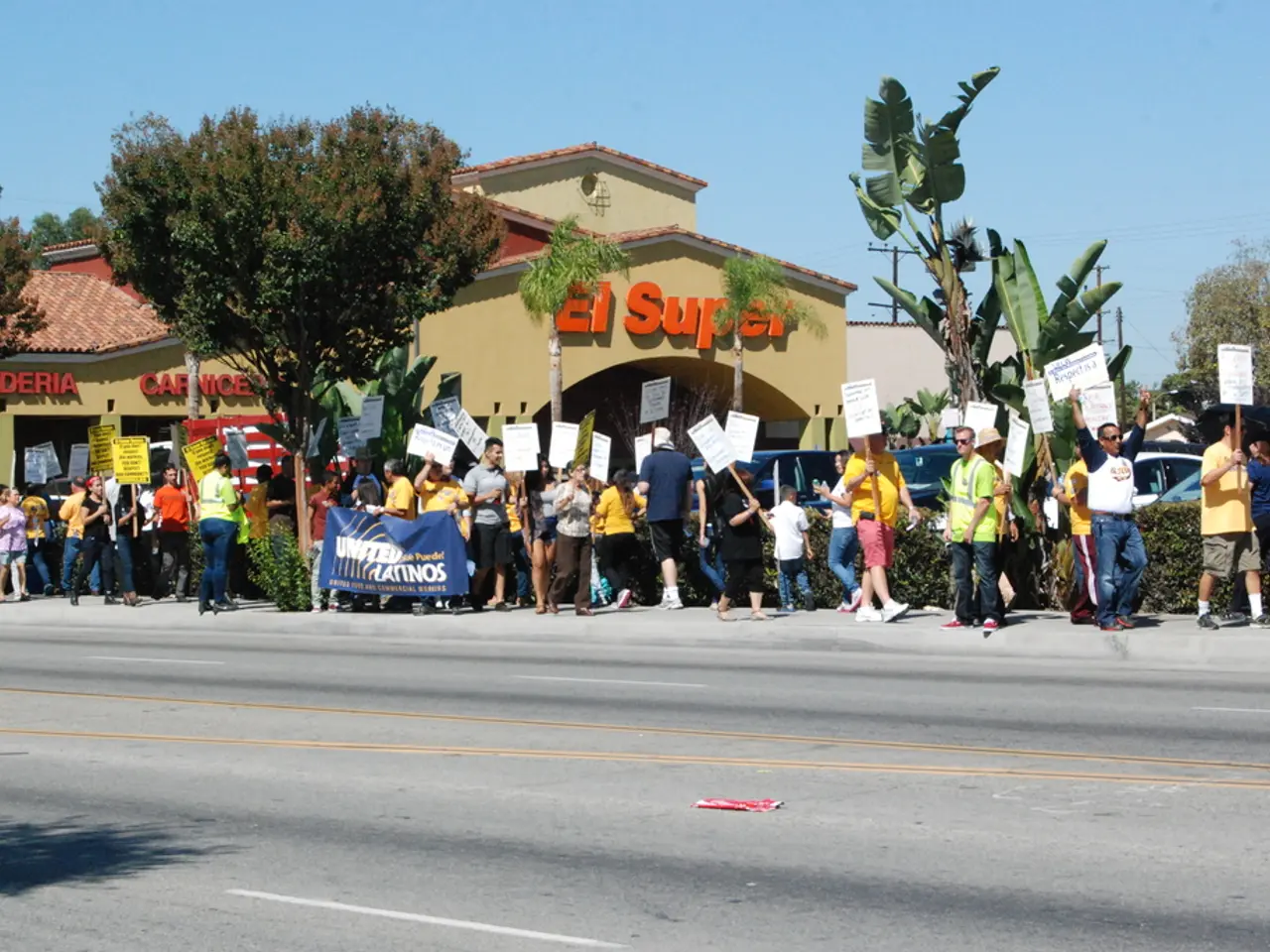Canada plans to dispatch naval ships to Haiti as the violence escalates.
Canada's moving forward, sending navy vessels to Haiti to gather intel, aiming to tackle the intensifying gang violence in this Caribbean nation, as Justin Trudeau, our Prime Minister, announced on Thursday. This announcement was made during a gathering of Caribbean leaders, where discussing Haiti's escalating murder, rape, and kidnapping rate, largely due to gangs, was a hot topic.
Haitian President Ariel Henry, also present, appealed for a full-fledged global military intervention to stem the issue. Haiti requested help from the U.N. Security Council in October and suggested the U.S. and Canada lead a force. However, no such intervention has come together, and neither nation has agreed to take the lead yet.
Canada's naval move comes shortly after one of its monitoring planes returned from a similar mission to collect intelligence for Haitian police. "Right now, Haiti is facing unrelenting gang violence, political turmoil, and corruption," Trudeau said. "Now is the time to come together to confront the intensity of this situation."
Trudeau emphasized that Canada, along with its neighbors, needs to focus on developing lasting services to restore order and security, make essential aid accessible, and create conditions for free and fair elections. In addition, he announced sanctions on two more Haitians: former interim president Jocelerme Privert and ex-political advisor Salim Succar.
Meanwhile, the U.S. State Department announced that it had imposed visa restrictions on five more Haitians and seven family members due to their roles in raising violence, corruption, and instability. A total of 44 people have faced U.S. restrictions since October. Moreover, Trudeau declared an additional $12.3 million in humanitarian aid and $10 million to support the International Office on Migration to secure Haitian women and children along Haiti's border with the Dominican Republic.
Trudeau also met Henry behind closed doors on Thursday, with Henry expressing his eagerness for Haiti to hold elections despite the worsening instability. According to the U.N., the number of reported killings in Haiti increased by 35% to 2,183 victims in 2023, while the number of reported kidnappings more than doubled to 1,359 victims.
A report last month from the U.N. Integrated Office in Haiti noted that "gang-related violence reached levels not seen in decades," forcing tens of thousands of people to flee warring gangs.
Canada, along with the U.S. and other nations, has already provided military equipment and other resources, as well as training, to Haiti's National Police, which has only 9,700 active-duty officers for a nation of over 11 million people. Gangs control an estimated 60% of Port-au-Prince's capital.
Furthermore, Trudeau promised $1.8 million to combat drug trafficking and improve border and maritime safety across the Caribbean. Alongside these security-oriented measures, Trudeau stated that Canada will set aside $44.8 million to help the Caribbean fight climate change.
The conference attended by Trudeau, attracting other officials including Brian Nichols, the U.S. assistant secretary of state for Western Hemisphere events, began on Wednesday and is scheduled to run through Friday.
Politics and war-and-conflicts have become a pressing concern in Haiti, as the country grapples with escalating gang violence, political turmoil, and corruption. In response, Canada has announced its decision to send navy vessels for intelligence-gathering, aiming to contribute to tackling the violence. General news outlets and crime-and-justice forums are closely monitoring these developments, as discussions regarding Haiti's future, including potential elections, continue to be a prominent topic on the global stage.








